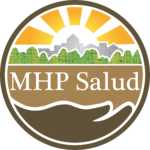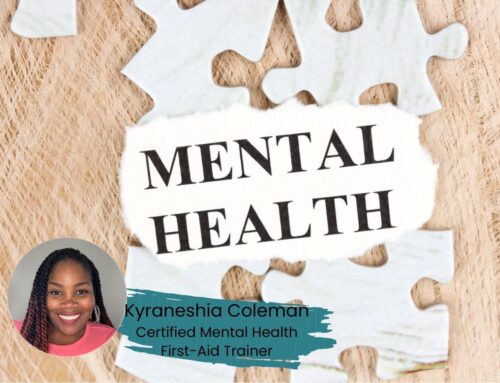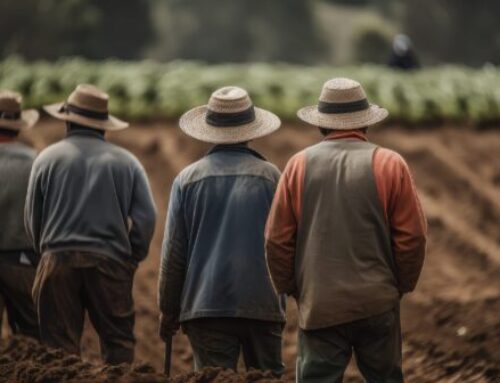A spotlight on the courses in our L.E.A.D. CHW Foundations package
One of our favorite things about our new Community Health Worker training curriculum is that it is built to be specifically relevant to the existing knowledge and skills of the participants who attend. Expert in your community but new to the role of CHW? Our CHW Foundations courses are the perfect place to begin!
At this level of our L.E.A.D. curriculum, we start at the beginning with a key discussion of “The Role of Community Health Workers” where trainers enable participants to connect their existing knowledge of their community to the broader framework of their role as CHWs. From there, each session builds on the previous to establish the skills for new CHWs to leave training empowered to engage their community with confidence.
How do we do it? We train what we teach. In the “Educating in the Community” session, we provide the tools for CHWs to educate their communities with interactive techniques and engagement strategies, ensuring MHP Salud-trained CHWs walk away with a solid understanding of best practices for educating adults. We apply these same techniques in our training sessions to maximize engagement and learning. Don’t think you can (or want to) sit and listen to a trainer lecture you for 16 hours? We don’t think so either. Instead, we offer engaging activities, known as dinámicas, to get you on your feet, keep you moving, and build connections with your peers. Read what one recent training participant said:
“I really loved the group activities. It helped with communication and helped open my mind up a bit more to different scenarios. It has encouraged me to get out of my comfort zone and try a new strategy.”
A crowd favorite activity is the Mail Carrier. For this activity, the group forms a circle with one less chair than participants. The person without a chair is the mail carrier in the center and chooses a characteristic true of themselves to “deliver letters” to people with that characteristic who then have to find a new seat. The person left standing is the new carrier and the activity continues. MHP Salud Program Coordinator and trainer Onaney Hernandez says:
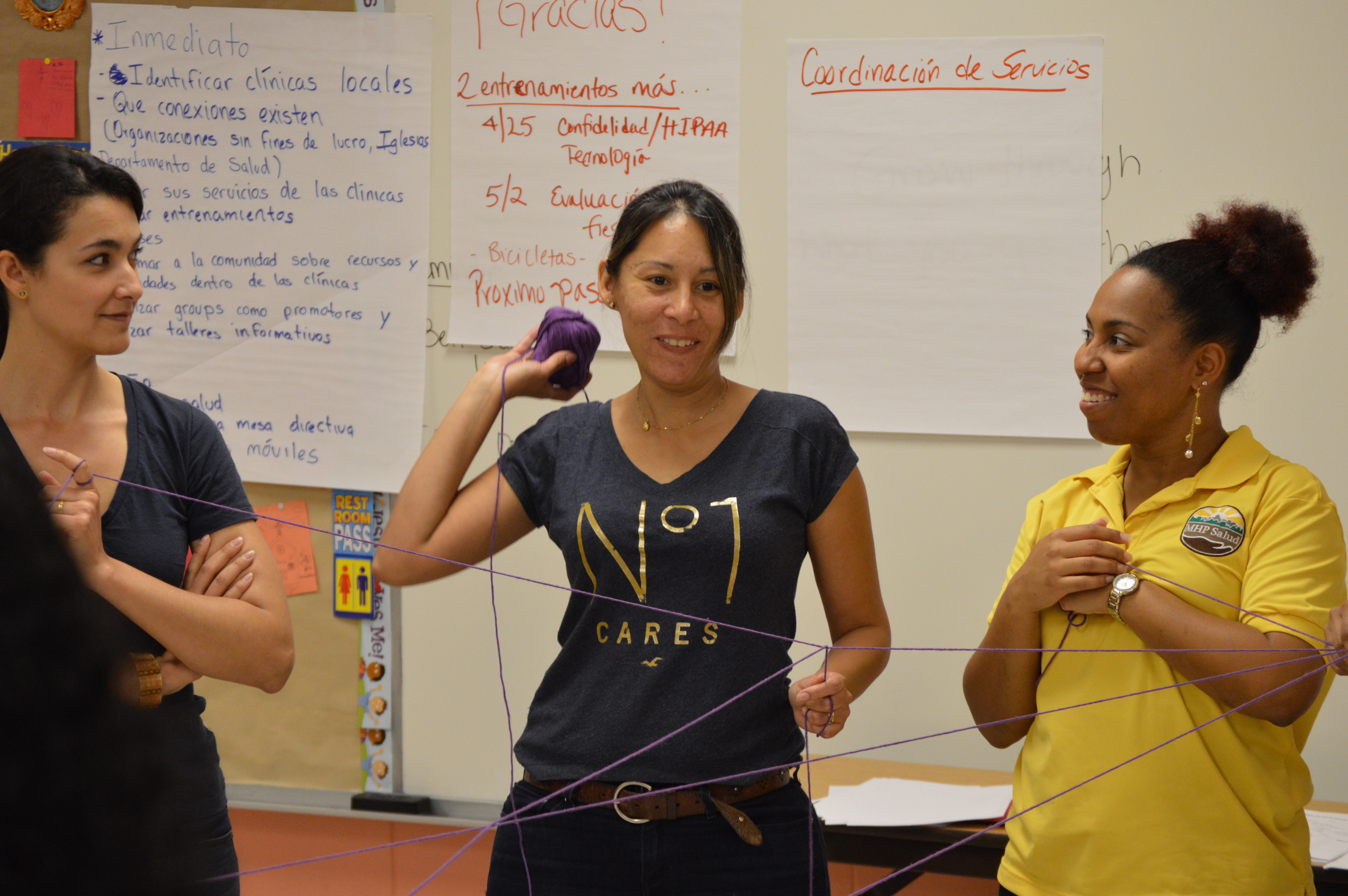
Trainings are punctuated by activities, which help engage participants in the session.
“Everyone seems to like the mail carrier activity because it’s easy to get involved in and it’s fun. What I love about it is that the first few rounds may be easy things like shoe color but by the end we’re learning things like who has been a CHW for less than a year, or who gets nervous presenting in front of a group. Everyone ends up laughing and learning something about the other people in the group. Establishing these connections with peers early on helps build a trust that makes small-group discussions later in the training easier and more productive.”
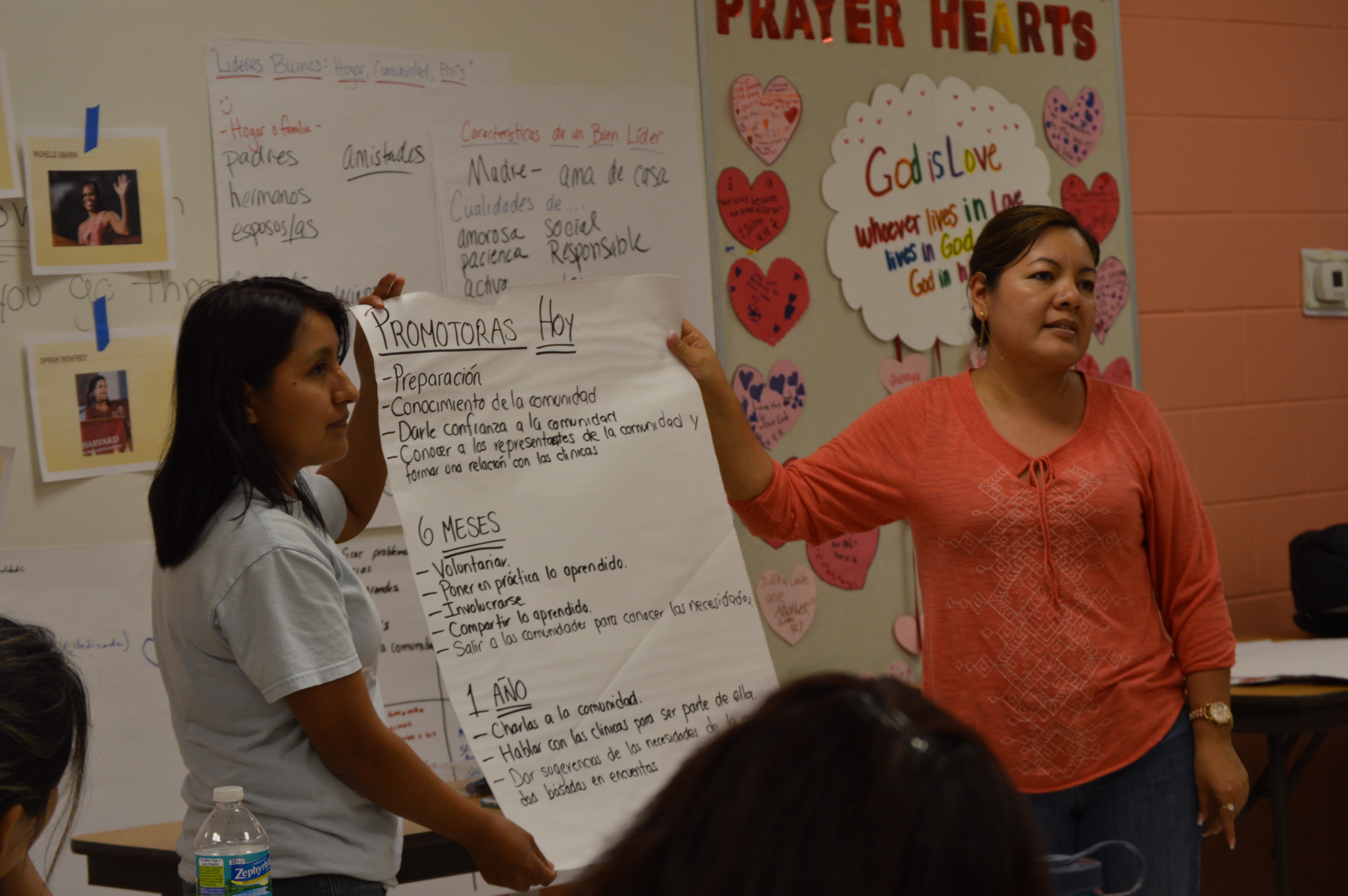
Our Community Health Worker training sessions encourage participation and group cooperation.
This rapport built among peers in the initial Foundations sessions is vital once we delve into deeper topics like “The Impact of Culture on Health” and “Ethical Responsibility and Confidentiality”. Through the use of video and small group discussion in the “Impact of Culture on Health” session, participants examine their own cultural lenses and consider the cultural constructs within their communities to better understand how culture can have an impact on health. A guided role-playing activity helps participants practice implementing techniques discussed.
In “Ethical Responsibility and Confidentiality” small groups go through case scenarios together to connect the concepts they’ve learned to real-life situations. These discussions offer the space to consider a difficult situation and to work through it with peers in a safe environment so that when similar situations come up in the community, CHWs have a framework for how to process the situation and respond appropriately.
The CHW Foundations level of L.E.A.D. is about starting at the beginning and building on skills and knowledge gained to leave the training feeling prepared and empowered to make change in your community. MHP Salud trainer Onaney describes the Foundations level this way:
“Part of Foundations is about finding common ground. Many participants may have different job titles but recognizing the work they are doing as Community Health Workers helps them to see they are part of something bigger. Helping to define their role and the scope of their influence is empowering and provides a focus for the many different tasks that are often part of the CHW role. My goal for the Foundations training is that every participant will walk away with at least one tool that makes their job easier and that they can connect with other CHWs to continue learning long after I’ve left.”
If you would like to find out more about the CHW Foundations level of L.E.A.D. click here. Have questions about whether this is the right place to start for your team? Check out our FAQs or call 956-373-9353.
About MHP Salud
MHP Salud has over thirty years of experience implementing CHW programs and training organizations looking to start and/or strengthen their own CHW programs. For more information about MHP Salud, our services, and how we can help you, please email us at info@mhpsalud.org


